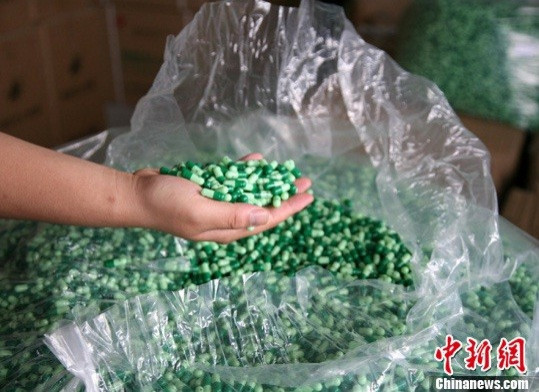Some Guantanamo Bay Detainees Given Mind-Altering Drugs During Interrogation, Defense Report Reveals

The unidentified prisoner was captured by Pakistanis in Karachi 10 years ago. After spending three days in that country he was taken to the Prison of Darkness, believed to be in Kabul, Afghanistan.
More than a month after that, he was transported to Bagram air base, also in Afghanistan, for about a week before eventually ending up at Guantanamo Bay, Cuba.
While undergoing interrogation in Bagram, the prisoner said he was given green and red pills. He took three of them and his tongue started getting heavy.
After that, I woke up and (interrogators) said 'thank you very much we've got what we need.' After I ate the stuff, it was like a state of delusion.
That's the information found in a Department of Defense (DoD) Inspector General report, which is providing new information on how United States military personnel are treating some terror suspects.
The report, titled Investigation of Allegations of the Use of Mind-Altering Drugs to Facilitate Interrogations of Detainees, showed that some detainees in the custody of U.S. military were forcibly drugged with mind-altering substances while being interrogated.
The nonprofit Truthout obtained the report by way of a Freedom of Information Act (FOIA) request filed nearly two years ago.
The prisoner mentioned above was told that the pills, which came in a clear plastic bag, were candy. They were sweet and he said, I was hungry so I ate them.
It took three to four days (to feel normal again), he was quoted in the report as saying. I was not normal until I came to Cuba and then I started to feel my mind back. It was a state of delusion. Like everything was a dream. My sensation was not great.
Ongoing Medication With Psychoactive Drugs
But while several detainees and their representatives have long claimed that drugs were used for interrogation purposes, the report couldn't corroborate that. DoD and the CIA are the agencies responsible for detaining terrorism suspects. And in the past, they, too, have denied using drugs as a means to coerce confessions.
We did not substantiate allegations made by or on behalf of present and former detainees that they have been administered mind-altering drugs for interrogation purposes at DoD interrogation facilities, the report stated. We did, however, note that some detainees received ongoing medication with psychoactive drugs, which could impair an individual's ability to provide accurate information.
These psychoactive drugs were used as treatment of diagnosed medical conditions.
We also observed that certain detainees, diagnosed as having serious mental health conditions and being treated with psychoactive medications on a continuing basis, were interrogated, the Inspector General report said.
The investigation into the claims that drugs were being used as part of the interrogation process was done between June 2008 and July 2009. Also included are detainees held since September 2001 through April 2008.
These prisoners are from Iraq, Afghanistan, Guantanamo Bay and the United States. Their names weren't provided but many of them were identified by officials conducting the report. Their legal representatives were also contacted and their medical records looked at.
What investigators found was that several detainees were given compulsory medical treatment. Others were given IV fluids for hydration purposes and at times a feeding tube, because of hunger strikes.
In some cases we were able to correlate a detainee's allegation of forced drugging with a particular medical treatment, the report noted.
An example of this was when a prisoner claimed he was often given IV during interrogation.
Investigators outlined that during a 2003 administrative review board hearing, that particular detainee said he was forcibly given frequent IVs many times a day by medical personnel during interrogation, which felt like repetitive stabs, and this happened on a daily basis. Medical personnel were involved in carrying out these methods used in interrogations.
Medical reviews were able to show investigators that the prisoner did, in fact, often receive IV fluids between Nov. 24, 2002 and Jan. 3, 2003.
[This was] a period in which he was interrogated almost daily, the reported stated.
These IVs were given in the interrogation room and documented.
Cough Medicine As Truth Serum?
There was an incident reported in the Army Surgeon General report, where a medical officer stationed in Baghdad, Iraq, said while treating a wounded civilian he was asked to administer cough syrup under the deception it was a truth serum.
The Inspector General report, which provided details of the Army Surgeon General report, said that the doctor refused to do so. The doctor then issued instructions to his colleagues that medical treatments were not to be used for interrogation purposes.
The medical officer said he refused to do what was asked of him because it would be a violation of medical ethics.
Brandon Neely, a former Guantanamo guard, spoke to Truthout and alleged that medics never informed the detainees what the medication was.
The medics walked around with little white cups that had pills in them a couple of times a day, Neely said. He would sometimes accompany the medics when they were giving out medication.
If the prisoners refused to take the medication, Neely said an Immediate Reaction Force team would be called to administer the medication by force.
You can read the full report here and full article written by Truthout on its website.
© Copyright IBTimes 2024. All rights reserved.






















